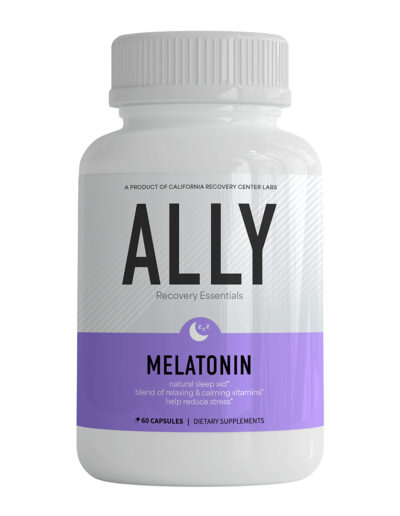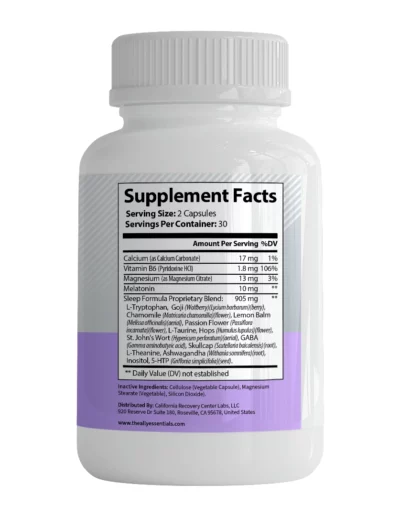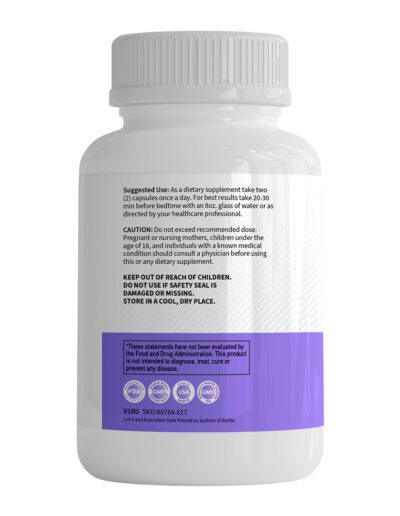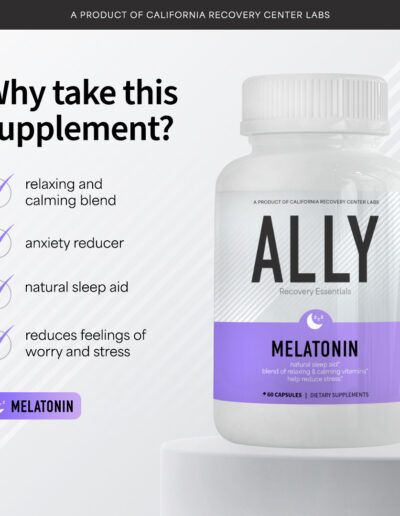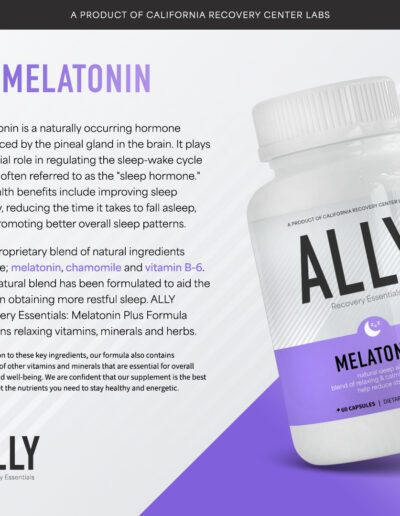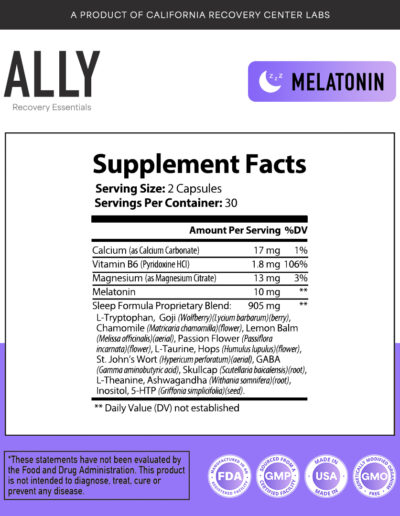Sleep is a vital component of overall health, especially during addiction recovery. Unfortunately, many individuals in recovery struggle with insomnia and other sleep disturbances, which can hinder their progress in addiction recovery. In this blog, we’ll delve into the science behind melatonin, its benefits for sleep, and how it can play a crucial role in alleviating insomnia often experienced during recovery.
What is Melatonin?
Melatonin is a hormone that your body naturally produces in response to darkness. It’s a key player in regulating your sleep-wake cycle, commonly known as the circadian rhythm. As the evening approaches and the environment darkens, melatonin levels in your body rise, signaling that it’s time to sleep. Conversely, when the sun rises, melatonin levels drop, helping you wake up and feel alert.
The Science Behind Melatonin and Sleep
Melatonin’s primary role is to prepare your body for sleep. It reduces nerve activity in the brain, lowers dopamine levels (which are associated with wakefulness), and helps synchronize your internal clock with the day-night cycle. For individuals struggling with insomnia, especially those in addiction recovery, melatonin can be a natural way to reset sleep patterns and improve sleep quality.
The Connection Between Recovery and Sleep
Recovery from addiction is a challenging process that requires physical, emotional, and mental resilience. However, one of the most common challenges during this journey is sleep disruption. Withdrawal symptoms, anxiety, stress, and even the body’s adaptation to sobriety can make it difficult to fall asleep or stay asleep. Unfortunately, poor sleep can exacerbate these challenges, leading to a vicious cycle where recovery is hindered by lack of rest.
The Role of Melatonin in Addiction Recovery
For those in recovery, achieving a good night’s sleep is more than just a comfort—it’s a necessity. Melatonin supplementation can provide the extra support needed to overcome insomnia and establish a regular sleep pattern. By aligning your sleep-wake cycle with the natural rhythms of your body, melatonin helps you fall asleep faster, stay asleep longer, and wake up feeling refreshed. This restorative sleep is crucial for managing stress, improving mood, and enhancing cognitive function—all of which are essential for successful recovery.
Introducing ALLY Essentials Melatonin Supplements
At ALLY Essentials, we recognize the unique sleep challenges that individuals in recovery face. Our melatonin supplements are crafted with this in mind, offering a gentle yet effective solution to support your sleep needs. Our supplements are formulated with high-quality melatonin to promote relaxation and help you achieve the deep, restorative sleep that’s so important for your recovery.
Why Choose ALLY Essentials?
- Tailored for Recovery: Our Melatonin Supplements are specifically designed to address the sleep challenges that often accompany addiction recovery.
- High-Quality Ingredients: We use only premium-grade melatonin to ensure safety, efficacy, and consistency in every capsule.
- Support for Healing: By promoting better sleep, ALLY Essentials Melatonin Supplements help support your body’s natural healing processes, making it easier to stay on track with your recovery goals.
Conclusion: Invest in Your Sleep, Invest in Your Recovery
Sleep is a critical component of the healing process during addiction recovery. If you’re struggling with insomnia, melatonin could be the natural solution you’ve been searching for. With ALLY Essentials Melatonin Supplements, you can support your body’s natural sleep cycle, improve your overall well-being, and stay committed to your recovery journey. Prioritize your sleep and take a step closer to the healthy, fulfilling life you deserve.


